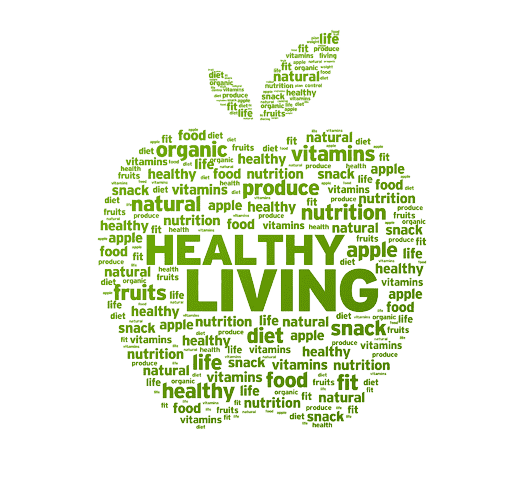Soda is a popular beverage that many people enjoy. It’s sweet, fizzy, and comes in a variety of flavors. However, it’s also a beverage that can have negative health consequences. Drinking soda regularly can lead to weight gain, tooth decay, and other health problems. Everyone has probably heard that they should quit drinking soda at some point in their lives, below we’ll break down the exact benefits you’ll see and why you should consider making this change in your life.
Benefits
First and foremost, cutting out soda can lead to weight loss. Soda is high in sugar, which is one of the leading causes of obesity. Drinking just one can of soda per day can lead to weight gain of up to 15 pounds in a year. By cutting out soda, you can reduce your calorie intake and help to prevent weight gain.
In addition to weight loss, stopping drinking soda can also improve your dental health. Soda is highly acidic and can erode the enamel on your teeth. Over time, this can lead to cavities and tooth decay. By cutting out soda, you can help to protect your teeth and prevent these problems from developing.
Another benefit of stopping drinking soda is improved digestion. Soda contains a lot of artificial ingredients and can cause bloating, gas, and other digestive issues. By cutting out soda, you can give your digestive system a break and help to improve your overall health.
Stopping drinking soda can also lead to better hydration. Soda is not a good source of hydration because it contains caffeine, which can cause dehydration. By cutting out soda and drinking more water instead, you can help to keep your body hydrated and improve your overall health.
Soda also has no nutritional value. Soda has no vitamins, minerals, fiber, or any essential nutrients. It only adds excess added sugar and calories to your diet. Some research suggests that people who consume soda or added sugar more frequently are more prone to wrinkles and other signs of aging.
Finally, stopping drinking soda can improve your overall health and well-being. Soda is linked to a variety of health problems, including heart disease, diabetes, and certain types of cancer. By cutting out soda, you can reduce your risk of developing these health problems and improve your overall quality of life.
Is diet soda a better option?
Switching to diet soda often seems like the easiest way to stop drinking regular soda.
Instead of being sweetened with sugar, diet sodas are sweetened with an artificial sweetener, such as aspartame, saccharin, sucralose, neotame, or acesulfame-K.
Although diet sodas are low in sugar, they have several downsides.
For example, they tend to have little nutritional value and still contain various acids that can harm your dental health.
If you’re looking to replace soda with diet soda, there are definitely better options to consider from a health perspective, including sparkling water, herbal teas, and other options that are mentioned in the next section.
How to quit drinking soda
So, how can you stop drinking soda? Here are some tips to help you make the transition:
- Replace soda with water or other healthy beverages. Water is the best choice for hydration, but you can also try other beverages like herbal tea, sparkling water, or fruit-infused water.
- Cut back gradually. If you’re used to drinking several cans of soda per day, try cutting back to one or two cans per day first. Then, gradually reduce your intake until you no longer drink soda at all.
- Find healthier ways to satisfy your sweet tooth. If you crave something sweet, try eating fruit or drinking a smoothie instead of reaching for a soda.
- Make it a habit. Once you’ve stopped drinking soda, make it a habit to avoid it altogether. Keep water or other healthy beverages on hand and avoid situations where you might be tempted to drink soda.
- Avoid getting hungry. Hunger is a key driver of cravings, including those for soda. Therefore, ensuring you don’t get hungry could help you combat soda cravings. To prevent hunger, ensure you eat regularly throughout the day and have healthy snacks nearby in case you feel hunger coming on.
Potential side effects of stopping
When you cut back on drinking soda, you may experience side effects.
If you’re used to drinking several cans of soda per day, you may experience symptoms of caffeine withdrawal, as most popular soda brands contain caffeine.
Symptoms of caffeine withdrawal include headaches, fatigue, anxiety, irritability, and low energy. However, these symptoms only occur in the first few days to 1 week of cutting back on caffeine and are temporary.
Plus, there are ways to reduce the likelihood of these symptoms, including:
- cutting back slowly rather than going cold turkey
- drinking plenty of water to avoid dehydration
- getting plenty of sleep to combat fatigue
Other than caffeine withdrawal, you may experience strong urges for soda or sugar cravings, which you can combat by choosing a soda alternative, opting for a healthier sweet treat, and following other strategies mentioned above.
It can be difficult for some, but if you can quit drinking soda can have numerous benefits for your health and well-being. By reducing your sugar intake, improving your dental health, and helping to prevent a variety of health problems, cutting out soda can be a positive change for your life. If you’re thinking about making this change, start small and gradually reduce your soda intake until you no longer drink it at all. With time, you’ll start to feel the benefits of a soda-free lifestyle and enjoy improved health and vitality.





